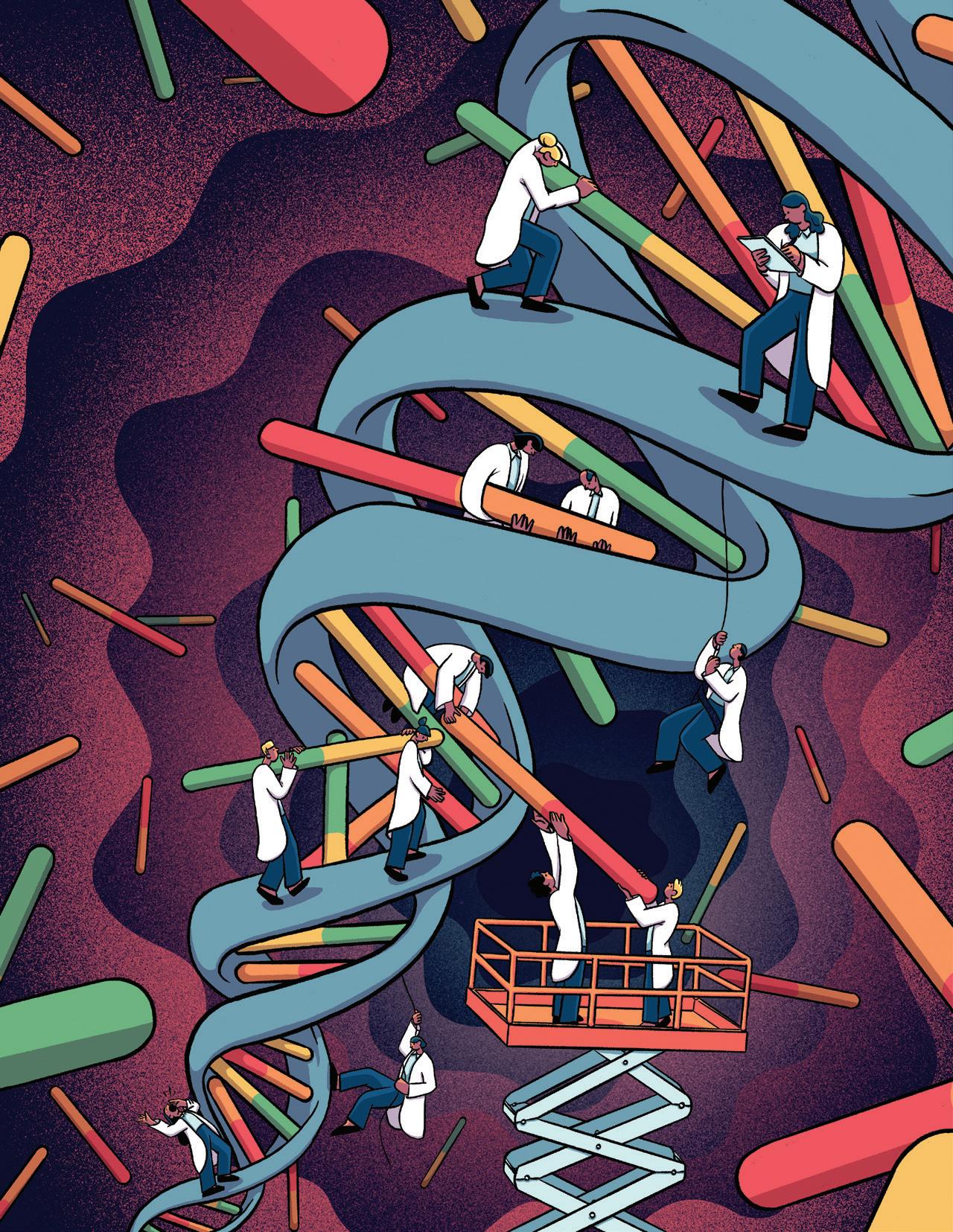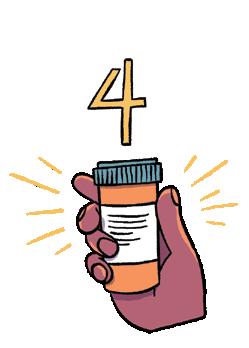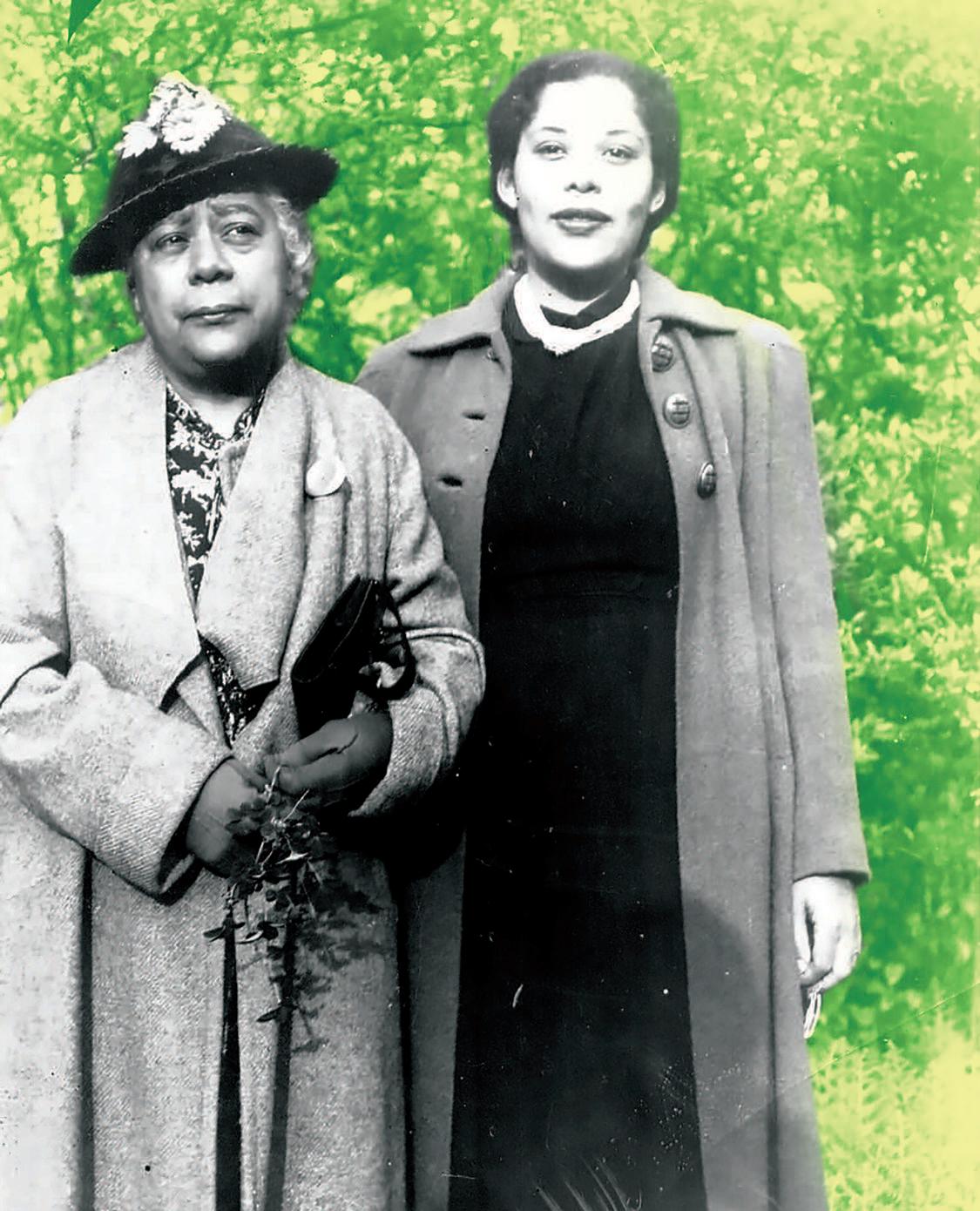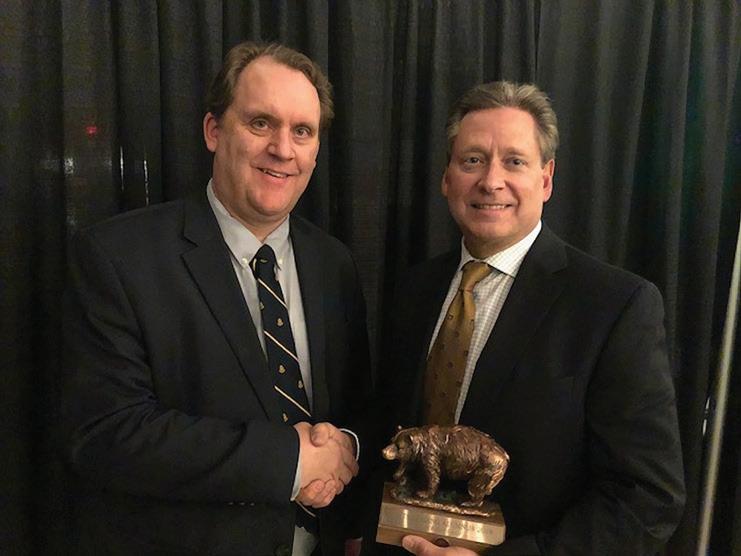
6 minute read
Tailor-Made Meds
IMPLEMENTING PHARMACOGENETIC TESTING IN ALBERTA PHARMACIES FOR BETTER MENTAL HEALTH TREATMENT
BY KALYNA HENNIG
Advertisement
HOW DOES IT WORK?

Your health care provider swabs the inside of your mouth (usually your cheek) to collect saliva.
The swab is sent to the lab to examine the genes that affect the enzymes in your body responsible for breaking down your drugs. The data examined is not a full picture of your DNA, but rather only a small piece of it relevant to your current or potential medications.

Based on the results, you and your pharmacist, physician and other health care professionals can discuss which medications will work best for you and which you should avoid to reduce side effects.

At the end, you and your health care team can select a medication tailored to you based on your genetic makeup.


FINDING THE RIGHT ANTIDEPRESSANT can take anywhere from a few months to several years1. When starting an antidepressant, it takes about four to six weeks for the medication to take full effect2. But when half of all patients on antidepressants will not see the results that they need3—forcing them to taper off the medication to start the process over again with an alternative antidepressant—the cure can seem far from reach. Lather, rinse, repeat.
This is where pharmacogenetics (PGx)—the study of how specific gene(s) can influence the body’s responses to a drug—comes in. Offering pharmacogenetic testing in pharmacies would allow patients to find the drug that works best for them with the least amount of side effects or adverse reactions. So why isn’t pharmacogenetic testing common in Canadian pharmacies? Researchers Dr. Lisa Guirguis (BSc Pharm 1997, MSc 2000, PhD), Associate Professor, and Heba Aref (BSc Pharm 2003, MSc 2018, PhD 2023), Graduate Research Assistant, are trying to find out how to fill the gap.
“Pharmacogenomics and pharmacogenetic testing aren’t new. They’ve been around for over a decade,” says Dr. Guirguis. “So, why are pharmacists not using them?”
Dr. Guirgius says that many of the perceived barriers have come down over the last ten years. The cost of the test has decreased from over a thousand dollars to around 200 to 300 dollars4. International drug plans are starting to cover the costs too. In the US, Medicaid fully covers pharmacogenetic tests5. But there’s still a disconnect.
“It isn’t a science problem. We have the science. It isn’t a knowledge problem. We have the knowledge. And we know how to educate pharmacists successfully. But there is something that is holding it up,” says Dr. Guirguis. “It’s the uptake of the technology that is the problem.”
Working with researcher Dr. Lisa McCarthy, based in Toronto at the Department of Family and Community Medicine, Women’s College Hospital, Dr. Guirguis looked over a previous study about implementing pharmacogenetics, specifically in mental health, to see what it would take to move it forward. The study involved the creation of a successful education program by Dr. McCarthy and Dr. Natalie Crown that taught 26 Ontario pharmacists about pharmacogenetics. But only five of the 26 pharmacists recruited more than five people for pharmacogenetic testing after taking part in the program6 .
So, the research team turned to its expertise in implementation science. As a pharmacy practice researcher that focuses on communications and social determinants of health, and most recently,

the implementation of prescribing for pharmacists, Dr. Guirguis’ experience in this area sets her and her team up to lead the creation of a flexible model for the implementation of pharmacogenetics in pharmacies in Canada, starting in Alberta. Currently, the team is conducting a literature review and talking with pharmacists, physicians, and patients—led by Aref—and beginning to map out a new implementation plan.
Through patient consultation, Aref is focused on trying to see how patients understand pharmacogenetics, how to create a health literacy intervention that could help them better know about the service, how they can utilize it and how they can feel confident talking to their pharmacist about it.
“I asked one patient, ‘if pharmacogenetics could help you find an effective medication, would that be valuable to you?’” says Aref. “Her answer really touched my heart. She said, ‘Oh, if only all these years could have been saved.’ For her, it was not three months of trial and error, it was years and years of her life. What she said has stayed with me and really emphasized my desire to look at the patients’ perspectives.”
Dr. Guirgius’ research motivation starts with patients too.
“When I started this project, I began to realize that I didn’t want to do this because it’s an interesting technology; I wanted to do this because patients need access to safe and effective medications, and I think pharmacogenetics is a tool that they really need access to, especially around mental health,” says Dr. Gurguis. “And to be honest, I got a whole lot more excited about it, once I looked at it from this angle. I really feel that this is something that needs to be done.”
The team’s goal is to develop a non-proprietary plan, package and toolkit that can be shared with pharmacists to implement pharmacogenetics into their daily practice.
“I’ll know this project is successful when we’ve developed a strategy that everyone can access and can be applied across all pharmacy settings,” says Dr. Guirguis.
“Implementation takes time and needs to be refined on site. It’s not a ‘go, teach and walk out’ process. It’s a process of working with people to create a problem-solving and quality improvement mentality. Pharmacists are amazing. If you want to see problem-solvers, look at what they have done during the COVID-19 pandemic. These are highly adaptable and highly flexible people that know how to change. So, we need to build on that.”

The pilot of this project was generously funded by the Margaret and Andrew Stephens Family Foundation.
GET INVOLVED!
• DONATE NOW to contribute to funding the translation of pharmacogenetics knowledge and implementation to pharmacists without barriers • ARE YOU A PHARMACY? The team is looking for pharmacies that want to move their practice in the direction of pharmacogenetics. • ARE YOU A PATIENT? The team is still looking for patients with experience using antidepressants to share their story and be part of the consultation process. Contact Dr. Lisa Guirguis at lisa.guirguis@ualberta.ca or (780) 492-9693
References
1. Keitner Gl., Ryan CE., Miller IW., Norman WH.
Recovery and major depression: factors associated with twelve-month outcome. Am J Psychiatry. 1992;149:1127–1128 2. www.mayoclinic.org/diseases-conditions/depression/ in-depth/antidepressants/art-20046273 3. Institute for Quality and Efficiency in Health Care (IQWiG); 2006; www.informedhealth.org 4. Shin, J., Kayser, S. R., & Langaee, T. Y. (2009).
Pharmacogenetics: from discovery to patient care.
American Journal of Health-System Pharmacy, 66(7), 625-637. 5. Young, J., Bhattacharya, K., Ramachandran, S. et al. Rates of genetic testing in patients prescribed drugs with pharmacogenomic information in FDAapproved labeling. Pharmacogenomics J (2021). doi-org.login.ezproxy.library.ualberta.ca/10.1038/ s41397-021-00211-1 6. Crown, N., Sproule, B. A., Luke, M. J., Piquette-
Miller, M., & McCarthy, L. M. (2020). A Continuing professional development program for pharmacists implementing pharmacogenomics into practice.
Pharmacy, 8(2), 55.










